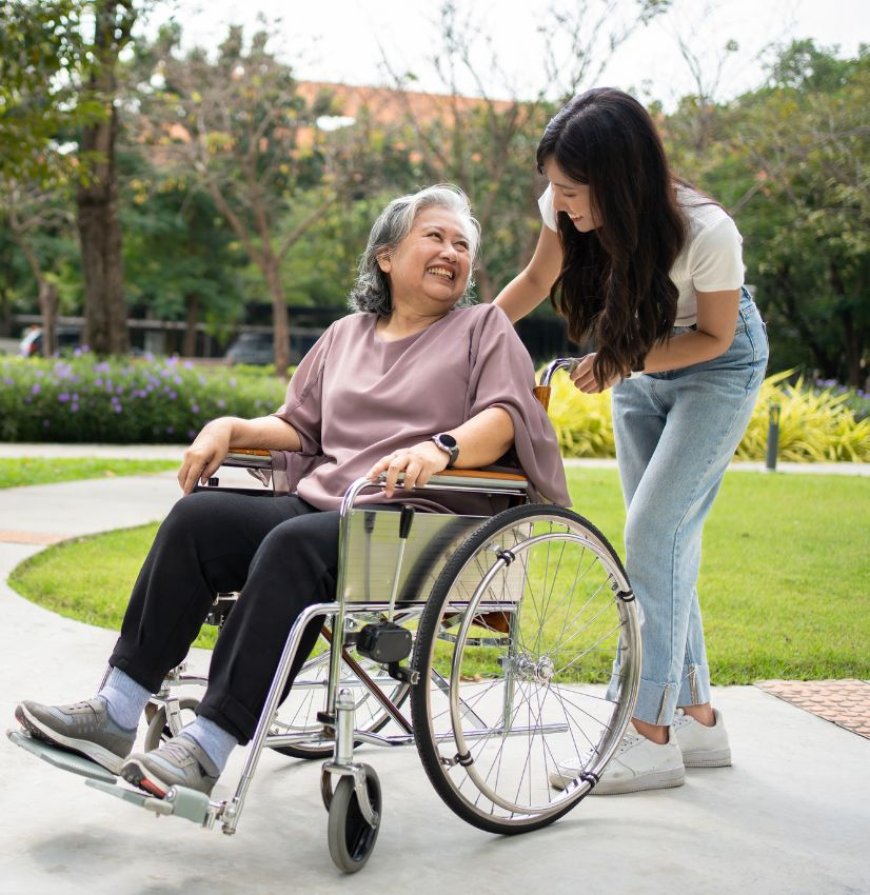How Do Sunshine NDIS Providers Ensure Cultural and Linguistic Inclusivity?
Discover how NDIS providers in Sunshine ensure inclusive services by embracing cultural and linguistic diversity. Learn about tailored support, language access, and community engagement.

The National Disability Insurance Scheme (NDIS) is designed to empower individuals living with disabilities to live independently and with dignity. However, the effectiveness of this program depends heavily on how inclusive it is, especially for participants from culturally and linguistically diverse (CALD) backgrounds.
Sunshine, a vibrant suburb of Melbourne, is known for its rich multicultural community. With a significant population of residents from diverse ethnicities and language groups, Sunshine’s NDIS providers face the important task of ensuring that every participant—regardless of cultural or linguistic background—receives personalized and respectful support. This article explores the concrete steps these providers take to promote inclusivity and equity.
Understanding the Diversity of Sunshine
Sunshine at a Glance
Sunshine boasts one of the most culturally diverse communities in Victoria. It is home to migrants from Vietnam, India, Sudan, Burma, the Philippines, and many other countries. According to the Australian Bureau of Statistics, over 40% of Sunshine residents speak a language other than English at home.
This cultural tapestry presents unique opportunities—and challenges—for local NDIS providers who are committed to making support services relevant and accessible to everyone.
Why Diversity Matters in Disability Support
For individuals with disabilities, feeling understood and respected is critical for building trust with support providers. When providers fail to consider cultural differences, it can lead to misunderstandings, isolation, and disengagement.
In diverse areas like Sunshine, inclusivity is not optional—it’s essential. Cultural norms influence how disabilities are perceived, how people seek help, and how they expect to receive care. By recognizing and respecting these nuances, NDIS providers create a more supportive environment for everyone.
The Core Principles of Inclusive NDIS Services
What Cultural and Linguistic Inclusivity Really Means
Cultural and linguistic inclusivity goes beyond offering translated materials. It means acknowledging the complex identities of participants and integrating their cultural values, traditions, and communication styles into service delivery.
Inclusivity involves:
-
Respecting cultural practices and holidays
-
Communicating in preferred languages
-
Engaging family and community in support planning
-
Being aware of and challenging unconscious biases
NDIS Framework Supporting CALD Participants
The NDIA (National Disability Insurance Agency) has emphasized inclusivity through its Cultural and Linguistic Diversity Strategy, which aims to:
-
Improve awareness and accessibility for CALD communities
-
Encourage service providers to adopt culturally appropriate practices
-
Offer training and resources for NDIS planners and partners
NDIS Practice Standards and Quality Indicators also include clear benchmarks for providers to uphold inclusive practices in their operations.
Strategies Used by Sunshine NDIS Providers
Multilingual Staff and Interpreting Services
One of the most effective inclusivity measures is hiring multilingual staff. Sunshine NDIS providers employ support coordinators, carers, and administration teams who can speak languages such as Vietnamese, Arabic, Mandarin, Hindi, Dinka, and more.
When a multilingual staff member is not available, providers arrange for certified interpreters to assist during intake, plan meetings, and service delivery.
Example: A Vietnamese-speaking family in Sunshine was matched with a bilingual coordinator who provided not only language translation but also cultural context, ensuring the family’s needs and preferences were thoroughly understood.
Culturally Tailored Support Plans
Sunshine NDIS providers recognize that “one-size-fits-all” does not apply in a multicultural setting. Instead, they create individualized plans that respect:
-
Religious beliefs (e.g., avoiding pork-based medications for Muslim participants)
-
Dietary needs
-
Gender preferences for support workers
-
Cultural taboos or sensitivities
Case Study: A Muslim participant observing Ramadan received modified support hours and food delivery options that aligned with fasting times and religious guidelines.
Community Engagement and Co-Design
Community engagement is a hallmark of inclusive service. Providers in Sunshine collaborate with local cultural associations and places of worship to:
-
Host information sessions in native languages
-
Distribute easy-to-read guides about the NDIS
-
Collect feedback to co-design better services
Example: A collaboration with the African Women's and Families Network led to improved outreach and higher NDIS participation among newly arrived migrant families.
Staff Training in Cultural Competency
Inclusivity training is ongoing for all staff members. Topics include:
-
Cultural awareness and sensitivity
-
Communication across cultures
-
Avoiding stereotypes and assumptions
Providers also offer opportunities for staff to reflect on their cultural lens and how it influences their interactions with participants.
Challenges Faced by NDIS Providers
Language Barriers and Miscommunication
Despite the best efforts, language can still be a barrier. Some rare dialects or indigenous languages lack qualified interpreters, making communication difficult.
Even with an interpreter, nuances may be lost, and participants might feel embarrassed or overwhelmed. This can lead to incomplete assessments or unmet needs.
Cultural Taboos and Stigma
In some cultures, disability is highly stigmatized. Families may avoid seeking help due to shame or fear of judgment. Providers must tread carefully, building trust slowly and respectfully.
Example: A family from a South Asian background hesitated to access services due to religious beliefs about karma and disability. A culturally trained support worker helped bridge the gap with empathy and respect.
Systemic and Structural Limitations
Some challenges go beyond the provider level:
-
Limited funding for culturally-specific initiatives
-
Lack of CALD representation in policy-making
-
Rigid program structures that may not accommodate flexible cultural practices
Innovations and Success Stories
Culturally Responsive Service Models
Sunshine has seen innovative models where services are led by individuals from the communities they serve. This peer-led model increases trust, participation, and cultural understanding.
Example: Indigenous-led disability services in Victoria have shown success by integrating cultural healing and community-led approaches.
Digital Tools for Inclusivity
Technology is helping to bridge gaps. Providers now use:
-
Multilingual websites with screen readers
-
Apps that offer NDIS information in multiple languages
-
Digital consent forms with voice-over explanations
These tools are especially useful for participants with limited literacy or visual impairments.
Building CALD Leadership in Disability Services
Encouraging CALD individuals to enter the disability workforce is a game-changer. Sunshine NDIS providers offer:
-
Mentorship programs
-
Cultural ambassador roles
-
Language-specific peer support networks
This representation ensures that services reflect the community they serve.
Conclusion: A Path Toward Truly Inclusive Care
Inclusivity is not a destination—it’s a continuous journey. Sunshine NDIS providers are leading by example, showing that culturally and linguistically inclusive care is both achievable and necessary.
From multilingual staff and tailored support plans to community engagement and CALD leadership, these efforts are helping bridge the gap between need and service.
Ultimately, true inclusivity uplifts everyone—participants, families, providers, and the broader community. As Sunshine continues to evolve, its NDIS ecosystem stands as a model for the rest of Australia.
FAQs
Q1: What does CALD mean in the NDIS context?
A: CALD stands for Culturally and Linguistically Diverse. It refers to individuals from non-English speaking or ethnic minority backgrounds who may need specialized support.
Q2: How can I find an NDIS provider in Sunshine that offers services in my language?
A: Use the NDIS Provider Finder tool and filter by language. You can also reach out to local multicultural centers for recommendations.
Q3: Can I request an interpreter during my NDIS planning meeting?
A: Yes. Interpreters are provided free of charge. Let your Local Area Coordinator or planner know in advance.
Q4: What are culturally appropriate services under NDIS?
A: These services consider your cultural customs, religious beliefs, communication styles, and preferences to offer respectful and relevant support.
Q5: Are Sunshine NDIS providers trained in cultural competency?
A: Most quality providers invest in regular cultural competency training for their staff to ensure respectful and inclusive care.
Q6: What if my current provider doesn’t understand my cultural needs?
A: You have the right to switch providers. Contact the NDIS or speak with your support coordinator for assistance.













































































